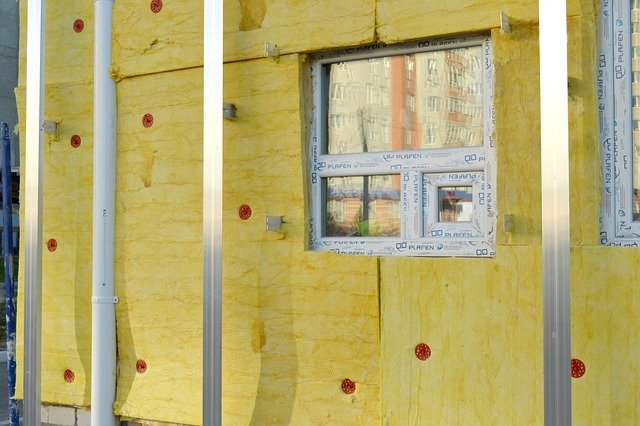Window Replacement Guide: How to Choose Energy-Efficient Windows for Your Home
From glass doors to energy-saving window replacements, modern solutions enhance both aesthetics and functionality. Discover the latest trends in durable window materials, roll-up door repairs, and how proper installation impacts long-term performance.

How do energy-efficient windows reduce heating and cooling costs?
Energy-efficient windows play a crucial role in minimizing heat transfer between your home’s interior and the outside environment. These windows typically feature multiple panes of glass with insulating gas between them, low-emissivity (low-E) coatings, and improved frame materials. By reducing heat gain in summer and heat loss in winter, energy-efficient windows can significantly lower your heating and cooling costs.
The low-E coatings reflect infrared light, keeping heat inside during winter and outside during summer. The insulating gas, usually argon or krypton, provides an additional barrier against temperature transfer. As a result, your HVAC system doesn’t have to work as hard to maintain a comfortable indoor temperature, leading to reduced energy consumption and lower utility bills.
What are the top signs you need immediate window replacement?
Recognizing the signs that your windows need replacement is crucial for maintaining your home’s energy efficiency and comfort. Here are some key indicators:
-
Drafts or cold spots near windows
-
Condensation or frost between glass panes
-
Difficulty opening, closing, or locking windows
-
Visible damage, cracks, or warping in frames or glass
-
Increased energy bills without significant changes in usage
-
Single-pane windows in older homes
-
Excessive outside noise penetration
If you notice any of these signs, it’s time to consider replacing your windows with energy-efficient alternatives to improve your home’s comfort and energy performance.
What role do windows play in home security and noise cancellation?
Windows are not just for letting in light and air; they also play a significant role in home security and noise reduction. Modern energy-efficient windows often come with enhanced security features such as multi-point locking systems, laminated glass, and reinforced frames. These features make it more difficult for intruders to gain entry through windows, providing an additional layer of protection for your home.
In terms of noise cancellation, energy-efficient windows with multiple panes and specialized glass can significantly reduce sound transmission from outside. The air or gas-filled spaces between panes act as sound barriers, while laminated glass can further dampen noise. This is particularly beneficial for homes in urban areas or near busy roads, as it creates a more peaceful indoor environment.
How do glass doors compare to traditional doors in terms of pros and cons?
Glass doors offer a unique alternative to traditional solid doors, each with its own set of advantages and disadvantages:
Pros of glass doors:
-
Increased natural light
-
Enhanced visual appeal and spaciousness
-
Seamless indoor-outdoor transition
-
Energy efficiency when properly insulated
Cons of glass doors:
-
Potential for reduced privacy
-
Higher maintenance (cleaning and fingerprints)
-
More expensive than some traditional door options
-
Possible security concerns if not properly reinforced
Traditional doors, on the other hand, offer better privacy and are often more cost-effective. They also provide better insulation in extreme climates. However, they lack the aesthetic appeal and light-enhancing properties of glass doors.
What are the latest trends in durable window materials?
The window industry has seen significant advancements in materials that offer both durability and energy efficiency. Some of the latest trends include:
-
Fiberglass frames: Extremely strong, low-maintenance, and excellent insulators
-
Composite materials: Combining wood fibers with polymers for strength and natural look
-
Vinyl with enhanced UV resistance: Improved longevity and color retention
-
Aluminum-clad wood: Combines the warmth of wood interiors with durable exterior protection
-
Smart glass technologies: Electrochromic glass that can change opacity for privacy and energy efficiency
These materials offer improved performance, longevity, and aesthetic options compared to traditional choices like wood or basic vinyl.
How does proper installation impact long-term window performance?
Proper installation is crucial for ensuring the long-term performance and energy efficiency of your new windows. Even the highest quality, most energy-efficient windows will underperform if not installed correctly. Here’s how proper installation affects window performance:
-
Air and water tightness: Correct installation prevents drafts and water infiltration, maintaining energy efficiency and preventing structural damage.
-
Insulation effectiveness: Proper sealing and insulation around the window frame maximize thermal performance.
-
Operational integrity: Correct alignment ensures smooth operation and proper locking mechanisms.
-
Longevity: Proper installation prevents premature wear and tear, extending the life of your windows.
-
Warranty validity: Many manufacturers require professional installation to maintain warranty coverage.
To ensure optimal performance, it’s recommended to hire certified professionals for window installation. They have the expertise to handle various window types and home constructions, ensuring your investment provides maximum benefits for years to come.
| Window Type | Energy Efficiency Rating | Average Cost (Installed) | Lifespan |
|---|---|---|---|
| Double-pane vinyl | Good | $450 - $600 per window | 20-40 years |
| Triple-pane vinyl | Excellent | $550 - $850 per window | 20-40 years |
| Fiberglass (double-pane) | Very Good | $500 - $1,500 per window | 50+ years |
| Wood-clad (double-pane) | Good | $800 - $1,000 per window | 30+ years |
| Aluminum (double-pane) | Fair | $400 - $1,200 per window | 15-20 years |
Prices, rates, or cost estimates mentioned in this article are based on the latest available information but may change over time. Independent research is advised before making financial decisions.
Choosing the right energy-efficient windows for your home involves considering various factors, including material, glass type, and installation quality. By understanding the benefits of energy-efficient windows and how they compare to alternatives like glass doors, you can make an informed decision that enhances your home’s comfort, security, and energy performance. Remember to look for signs of needed replacement and prioritize proper installation to ensure your new windows provide optimal benefits for years to come.




